Home>diy>Building & Construction>What Is Considered Permanent Foundation For A Mobile Home
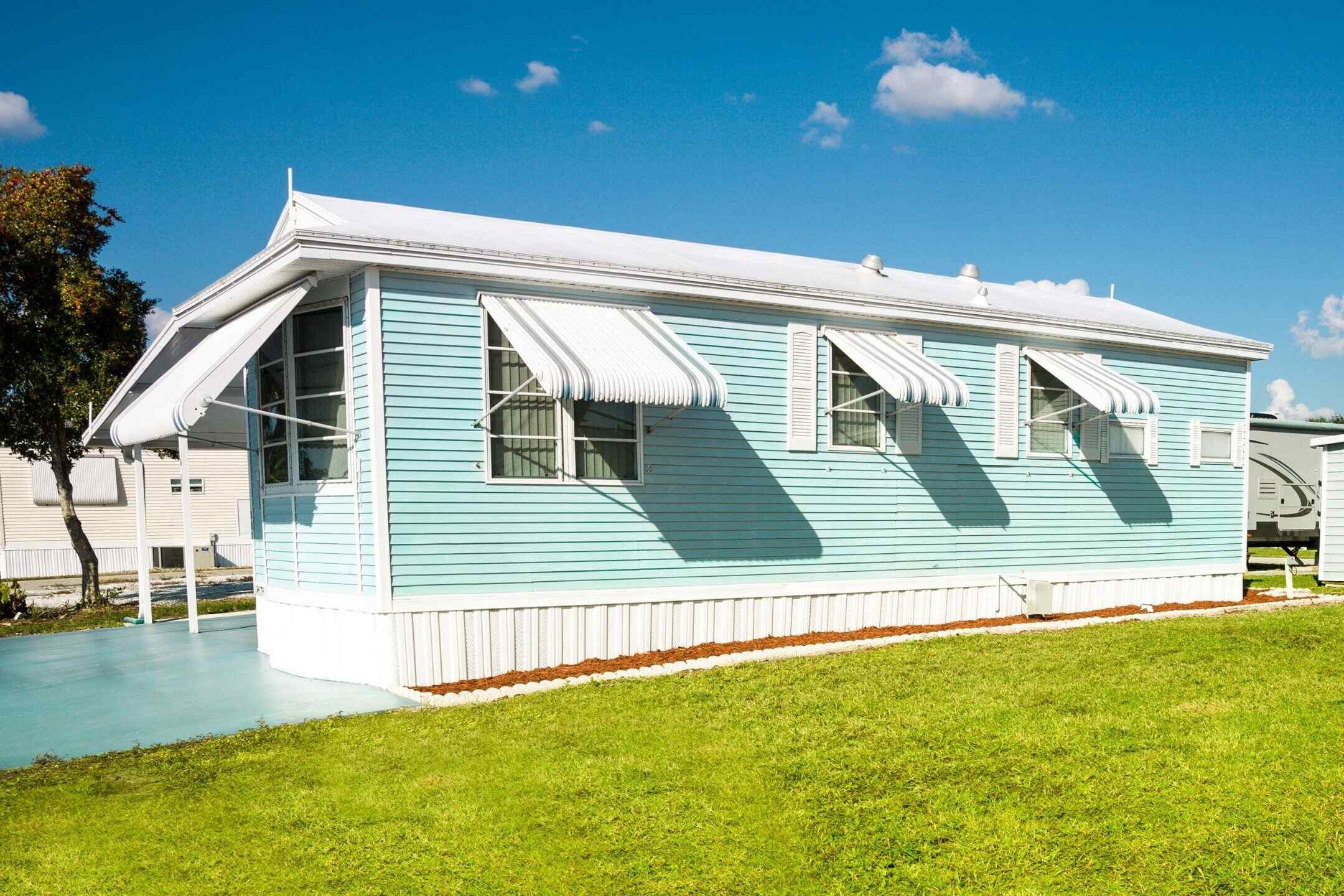

Building & Construction
What Is Considered Permanent Foundation For A Mobile Home
Modified: December 7, 2023
Learn what is considered a permanent foundation for a mobile home and its importance in building construction. Gain insights on building-construction requirements.
(Many of the links in this article redirect to a specific reviewed product. Your purchase of these products through affiliate links helps to generate commission for Storables.com, at no extra cost. Learn more)
Introduction
Welcome to the world of building construction! In this article, we will delve into an important aspect of mobile home construction: the permanent foundation. Whether you are a homeowner considering a mobile home purchase or a construction professional looking to enhance your knowledge, understanding what is considered a permanent foundation for a mobile home is crucial.
A mobile home, also known as a manufactured home, is a prefabricated structure that is transported to a site and then placed on a foundation. While mobile homes were traditionally placed on temporary foundations, it is increasingly common for them to be placed on permanent foundations. A permanent foundation provides stability, durability, and compliance with building regulations.
So, what exactly is a permanent foundation for a mobile home? Simply put, it is a foundation that is designed and constructed to permanently support and stabilize the mobile home. The foundation must meet specific requirements to ensure the safety and structural integrity of the structure. Let’s explore the different types of permanent foundations commonly used for mobile homes.
Key Takeaways:
- A permanent foundation for a mobile home is crucial for stability, durability, and compliance with building regulations. It offers benefits such as structural stability, energy efficiency, and increased resale value.
- When installing a permanent foundation, consider local regulations, site evaluation, suitable designs and materials, professional expertise, budget, maintenance, and future expansion. Consulting with professionals is essential for a successful installation.
Definition of a Permanent Foundation for a Mobile Home
A permanent foundation for a mobile home is a structure that is designed and built to provide a solid and secure base for the mobile home. It serves as a means of stabilizing and supporting the structure, ensuring that it remains in place and is resistant to the forces of nature.
Unlike temporary foundations, which are often made of wooden blocks or piers, a permanent foundation is typically made of more durable materials such as concrete or steel. The foundation is constructed to meet specific building codes and regulations set forth by local authorities and the Department of Housing and Urban Development (HUD).
One essential characteristic of a permanent foundation is its ability to provide a solid connection between the mobile home and the ground. This connection is achieved through the use of footings, anchor bolts, and tie-downs. These components work together to prevent the home from shifting or moving during high winds or seismic activity.
Another key aspect of a permanent foundation is its elevation. The foundation must elevate the home to a level that is above the surrounding grade to prevent water infiltration and potential damage to the structure. This elevation can be achieved through the use of crawl spaces or basements, depending on the design and local building requirements.
Additionally, a permanent foundation for a mobile home must have adequate ventilation to promote airflow beneath the structure. This is important in preventing moisture buildup, which can lead to mold growth, wood rot, and other structural issues.
It is essential to note that the specific requirements for a permanent foundation may vary depending on factors such as the location, climate, and local building codes. Therefore, it is crucial to consult with a professional contractor or building inspector to ensure compliance with the appropriate guidelines.
Types of Permanent Foundations
There are several different types of permanent foundations that are commonly used for mobile homes. These foundation types vary in design, materials, and installation methods. Let’s explore some of the most common options:
- Concrete Block Foundation: This type of foundation utilizes concrete blocks, also known as cinder blocks, to create a sturdy and stable base for the mobile home. The blocks are laid out in a grid pattern and are reinforced with steel reinforcement bars and mortar. Concrete block foundations are relatively affordable and provide excellent structural support.
- Poured Concrete Foundation: A poured concrete foundation involves pouring liquid concrete into formwork to create a solid and continuous foundation. This type of foundation offers exceptional strength and durability, making it a popular choice for mobile homes. It can withstand high winds and seismic activity, providing enhanced stability and protection.
- Strip Footing Foundation: This type of foundation consists of continuous strip footings placed under the perimeter of the mobile home. The footings distribute the weight of the home evenly, preventing settling and ensuring stability. Strip footing foundations are often used in areas with expansive soils to minimize movement caused by soil shrinkage and expansion.
- Pier Foundation: A pier foundation involves the use of individual concrete or steel piers placed strategically beneath the mobile home. These piers act as support columns, directly bearing the weight of the home. Pier foundations are ideal for sites with uneven terrain and can be adjusted to ensure a level installation.
- Tie-Down Foundation: In areas prone to high winds or earthquakes, tie-down foundations are used to provide additional security and prevent the mobile home from shifting or overturning. This type of foundation involves anchoring the home to the ground using steel straps or cables attached to embedded anchors.
It’s important to consider factors such as local building codes, soil conditions, and climate when deciding on the type of permanent foundation for a mobile home. Consulting with a professional engineer or contractor can help determine the most suitable foundation option for your specific circumstances.
Concrete Block Foundation
A concrete block foundation is a common type of permanent foundation used for mobile homes. It offers a strong and reliable base that provides stability and support to the structure. This type of foundation is typically made up of concrete blocks, also known as cinder blocks, that are stacked and reinforced to form a solid wall.
The process of constructing a concrete block foundation begins with laying a solid footing. The footing is created by digging trenches and filling them with concrete, providing stability and preventing settling. Once the footing is in place, the concrete blocks are laid on top of it, using mortar to bind them together. The blocks are stacked in a grid pattern, creating a sturdy foundation wall.
Reinforcement is an important component of a concrete block foundation. Steel reinforcement bars, also known as rebar, are inserted into the hollow cores of the concrete blocks to enhance the strength and stability of the foundation. The rebar helps to distribute the load evenly and prevent cracking or shifting of the blocks.
One advantage of a concrete block foundation is its affordability compared to other types of foundations. Concrete blocks are widely available and relatively inexpensive, making them a cost-effective choice for many homeowners. Additionally, constructing a concrete block foundation is a relatively straightforward process, making it an accessible option for DIY enthusiasts.
In terms of strength and durability, a concrete block foundation is known for its resilience. It can withstand the forces of nature, including high winds and seismic activity. The mass of the blocks also helps to regulate temperature and provide insulation, making it energy-efficient.
However, it is important to note that a concrete block foundation may not be suitable for all soil conditions. In areas with expansive soils or poor drainage, additional measures such as moisture barriers and proper waterproofing should be implemented to prevent moisture-related damage.
Regular inspection and maintenance are also essential for a concrete block foundation. Periodically checking for cracks, ensuring proper drainage, and addressing any signs of moisture infiltration are crucial to preserving the integrity of the foundation.
Consulting with a professional contractor or engineer is recommended when considering a concrete block foundation for your mobile home. They can assess your specific site conditions, evaluate the soil composition, and provide guidance on the appropriate construction techniques to ensure a strong and durable foundation.
Poured Concrete Foundation
A poured concrete foundation is a popular and durable option for a permanent foundation for a mobile home. It is known for its strength, stability, and longevity, making it a reliable choice for homeowners. This type of foundation involves pouring a continuous, solid slab of concrete to create a strong and level base for the mobile home.
The process of constructing a poured concrete foundation begins with excavating the site to the required depth. This creates a space for the foundation and allows for proper drainage. Once the excavation is complete, forms are set up to define the shape and dimensions of the foundation. These forms act as molds that contain the liquid concrete during the pouring process.
Before pouring the concrete, reinforcing steel bars, also known as rebar, are placed within the forms. The rebar helps to add structural strength and prevent cracking. Once the rebar is in place, the concrete is poured into the forms, filling the space and creating a solid foundation slab. The concrete is then leveled and smoothed to achieve a flat and even surface.
Poured concrete foundations offer several advantages. One of the key benefits is their exceptional strength and durability. Concrete is resistant to many environmental factors, including high winds, water damage, and pests. A poured concrete foundation can withstand the test of time and provide a reliable base for the mobile home.
Another advantage of a poured concrete foundation is its versatility in design. It allows for customizations and adaptations to fit various site conditions and architectural preferences. The flexibility in shape and size also makes it easier to accommodate specific mobile home configurations and floor plans.
In addition to strength and versatility, a poured concrete foundation provides excellent insulation properties. The thickness of the concrete helps regulate temperature, retaining warmth in colder climates and keeping the interior cool in hotter regions. This can contribute to energy efficiency and cost savings on heating and cooling expenses.
However, it is important to note that constructing a poured concrete foundation requires skilled labor and specialized equipment. This process should typically be handled by professional contractors or experienced construction teams who have the knowledge and expertise to ensure proper mixing, pouring, and curing of the concrete.
Regular maintenance is also crucial for a poured concrete foundation. Periodic inspections, addressing any cracks or signs of deterioration, and taking proactive measures to prevent water infiltration are essential for preserving the integrity of the foundation.
Considering the strength, durability, and versatility of a poured concrete foundation, it is a reliable choice for a permanent foundation for a mobile home. Consulting with a professional contractor can help determine if this type of foundation is suitable for your specific site and ensure a successful construction process.
When considering a permanent foundation for a mobile home, it’s important to ensure it meets local building codes and regulations. This typically involves a concrete slab or pier and beam foundation. Always consult with a professional to ensure compliance.
Read more: What Insulation To Use Under Mobile Home
Permanent Foundation Inspection Guidelines
Ensuring the safety and compliance of a permanent foundation for a mobile home is essential. Regular inspections are crucial to identify any potential issues or deficiencies that may compromise the stability and structural integrity of the foundation. Here are some guidelines to follow when conducting a permanent foundation inspection:
- Check for settling or shifting: Inspect the foundation to identify any signs of settling or shifting. Look for cracks in the foundation walls or floors, as well as unevenness or sloping of the structure. These may indicate foundation movement that needs to be addressed.
- Inspect for moisture infiltration: Check for any signs of moisture intrusion into the foundation, such as water stains, dampness, or mold growth. Moisture can weaken the foundation and lead to further damage if not addressed promptly.
- Examine the footing and support: Inspect the footing of the foundation to ensure that it is secure and adequately supports the structure. Look for any signs of degradation, such as cracks or crumbling. Also, check the supports, such as piers or posts, to ensure they are properly aligned and in good condition.
- Assess the connection to the mobile home: Check the connection between the foundation and the mobile home. Look for proper anchoring systems, such as anchor bolts or tie-downs, that ensure a solid attachment. The connection should be secure and in compliance with local building codes.
- Evaluate drainage systems: Inspect the drainage systems around the foundation to ensure proper water redirection and prevention of pooling or flooding. Check that gutters, downspouts, and grading are in good condition and effectively directing water away from the foundation.
- Inspect for pest damage: Look for any signs of pest infestation or damage, such as termite tunnels or wood rot. Pests can cause significant damage to the foundation and compromise its stability.
- Review compliance with building codes: Verify that the permanent foundation meets the local building codes and regulations specific to mobile homes. Ensure that the construction methods, materials, and dimensions are in compliance with the applicable guidelines.
- Consider professional inspection: While conducting a basic inspection is important, it is also recommended to hire a professional inspector or engineer with expertise in mobile home foundations. They can provide a comprehensive evaluation and identify any underlying issues that may not be easily discernible.
By following these inspection guidelines, you can ensure the continued safety and stability of your mobile home’s permanent foundation. Regular inspections, along with timely repairs and maintenance, will help protect your investment and provide peace of mind.
Benefits of Having a Permanent Foundation
Having a permanent foundation for your mobile home offers several advantages over temporary foundations. Whether you are a homeowner or a potential buyer of a mobile home, understanding the benefits of a permanent foundation can help you make informed decisions. Here are some key benefits:
- Structural Stability: A permanent foundation provides a solid and stable base for your mobile home. It helps distribute the weight of the structure evenly and prevents shifting, settling, or tilting. This stability is crucial for the structural integrity of the home and ensures a safe and comfortable living environment.
- Increased Durability: Permanent foundations are typically constructed using durable materials such as concrete or steel. These materials offer excellent resistance to elements like moisture, rot, pests, and natural disasters. A permanent foundation can withstand the test of time and provide long-lasting support for your mobile home.
- Improved Energy Efficiency: Permanent foundations often include features to enhance energy efficiency. By sealing any gaps or cracks in the foundation, you can reduce air leakage and prevent heat loss or gain. Additionally, proper insulation in the foundation can help regulate indoor temperatures, leading to lower energy consumption and reduced utility bills.
- Enhanced Curb Appeal: Permanent foundations can add to the aesthetic appeal of your mobile home. With various foundation designs and finishes available, you can choose a style that complements the overall look of your home. An attractive foundation can significantly improve the curb appeal and value of your property.
- Compliance with Building Regulations: Many jurisdictions have building codes and regulations in place that require mobile homes to be placed on permanent foundations. Having a compliant foundation ensures that your home meets the necessary safety and structural standards set by local authorities. It also provides peace of mind, knowing that your home is built to code.
- Potential Financing and Insurance Benefits: Some lenders and insurance companies may have specific requirements regarding the foundation of mobile homes. Having a permanent foundation can improve your eligibility for financing options and insurance coverage. It demonstrates the stability and value of your property, making it more attractive to financial institutions and insurance providers.
- Flexibility in Home Placement: Mobile homes with permanent foundations often have more flexibility in terms of placement. They can be eligible for placement on private land, offering the freedom to choose the location that best suits your needs and preferences. This can include rural or suburban settings, making it easier to find a suitable and desirable place to call home.
- Increased Resale Value: A mobile home with a permanent foundation generally has a higher resale value compared to those with temporary foundations. The added stability, durability, and aesthetic appeal contribute to the overall value and desirability of the property. If you ever decide to sell your home, having a permanent foundation can attract potential buyers and command a higher selling price.
Overall, having a permanent foundation for your mobile home offers numerous benefits in terms of stability, durability, energy efficiency, compliance, and financial considerations. It is a valuable investment that not only enhances the overall quality of your living environment but also provides peace of mind and long-term value.
Considerations for Installing a Permanent Foundation
When installing a permanent foundation for your mobile home, there are several important considerations to keep in mind. Taking these factors into account will ensure a successful and efficient installation process. Here are some key considerations to consider:
- Regulations and Permits: Before beginning the installation, research and familiarize yourself with the local building codes, zoning regulations, and permit requirements. Each jurisdiction may have specific guidelines for mobile home foundations, including setback requirements, foundation types, and inspection procedures. Ensuring compliance with these regulations is essential for a smooth installation process.
- Site Evaluation: Assess your site conditions thoroughly to determine the suitability of the location for a permanent foundation. Consider factors such as soil type and stability, drainage, and slope. Consulting with a soil engineer or geotechnical expert may be necessary to evaluate the soil’s bearing capacity and any potential drainage or geotechnical issues.
- Foundation Design: Choose the appropriate foundation design based on your specific needs and site conditions. Consider factors such as the type of soil, local climate, and potential for seismic activity. The foundation design should be able to provide stability, adequate support, and protection against natural elements and external forces.
- Selection of Construction Materials: Select high-quality and durable construction materials for your permanent foundation. Depending on the design and site conditions, materials such as concrete, steel, or treated wood may be used. Ensure that the chosen materials meet the standards and requirements specified by local regulations.
- Professional Expertise: Hiring a professional contractor with experience in mobile home foundations is highly recommended. They will have the expertise and knowledge to ensure proper installation and compliance with building codes. A professional contractor can also provide guidance on the most suitable foundation design and construction methods for your specific site conditions.
- Budget and Timeline: Establish a realistic budget and timeline for the installation of the permanent foundation. Consider the cost of materials, labor, permits, and any additional site preparation needed. It is also important to factor in potential delays due to weather conditions or unexpected issues that may arise during construction.
- Maintenance and Durable Features: Plan for regular maintenance to preserve the integrity and longevity of your permanent foundation. Consider incorporating durable features such as proper drainage systems, moisture barriers, and foundation coatings to prevent water infiltration and deterioration. Regular inspections, cleaning, and repairs should be carried out to address any issues promptly.
- Future Needs and Expansion: Consider future needs and potential expansion when designing the permanent foundation. If you plan on adding extensions or making modifications to your mobile home in the future, ensure that the foundation is designed to accommodate these changes. This foresight can save you time, effort, and expenses down the line.
Before proceeding with the installation of a permanent foundation, it is crucial to consult with professionals, conduct thorough research, and gather the necessary permits and approvals. By considering these important factors, you can ensure a successful installation that provides a solid and stable foundation for your mobile home.
Conclusion
In summary, having a permanent foundation for your mobile home is an important aspect of ensuring stability, durability, and compliance with building regulations. Understanding the definition, types, inspection guidelines, benefits, and considerations of a permanent foundation is crucial for homeowners and construction professionals alike.
A permanent foundation provides numerous benefits, including increased structural stability, enhanced durability, improved energy efficiency, and compliance with building codes. It also offers flexibility in home placement, potential financing and insurance benefits, and increased resale value. These advantages make investing in a permanent foundation a wise choice for mobile homeowners.
When installing a permanent foundation, it is essential to consider local regulations and permits, evaluate site conditions, select suitable designs and materials, and seek professional expertise. Setting a realistic budget and timeline, planning for maintenance and future expansion, and conducting regular inspections are also key considerations to ensure the foundation’s longevity and functionality.
By adhering to these guidelines and considering the various factors involved, you can have a secure and reliable permanent foundation that provides a solid base for your mobile home, protects your investment, and offers peace of mind.
Remember, consulting with professionals and experts in mobile home foundations is recommended to ensure a successful installation and compliance with local codes and standards. With a well-designed and properly installed permanent foundation, you can enjoy a safe and comfortable living environment for years to come.
Frequently Asked Questions about What Is Considered Permanent Foundation For A Mobile Home
Was this page helpful?
At Storables.com, we guarantee accurate and reliable information. Our content, validated by Expert Board Contributors, is crafted following stringent Editorial Policies. We're committed to providing you with well-researched, expert-backed insights for all your informational needs.
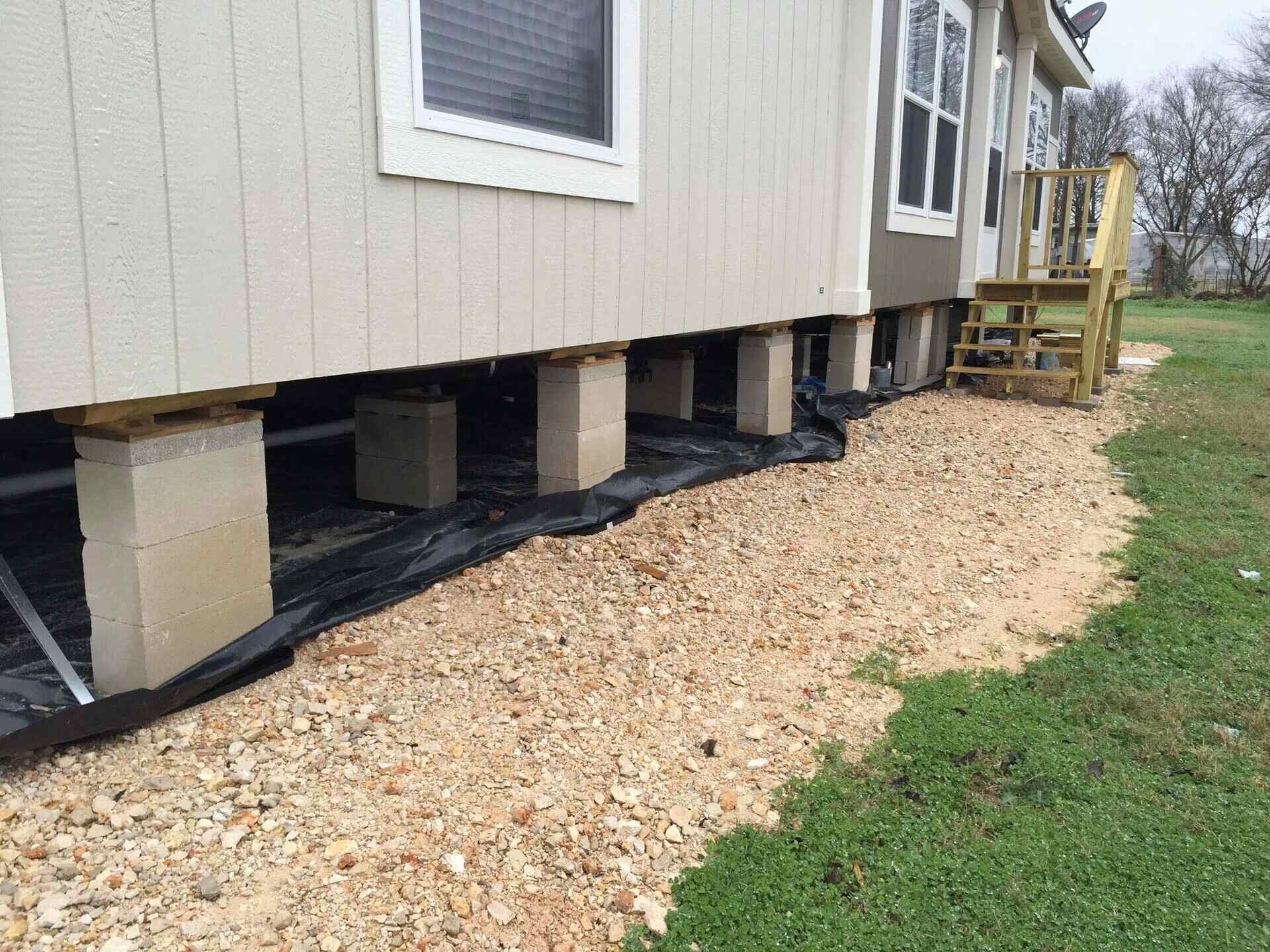



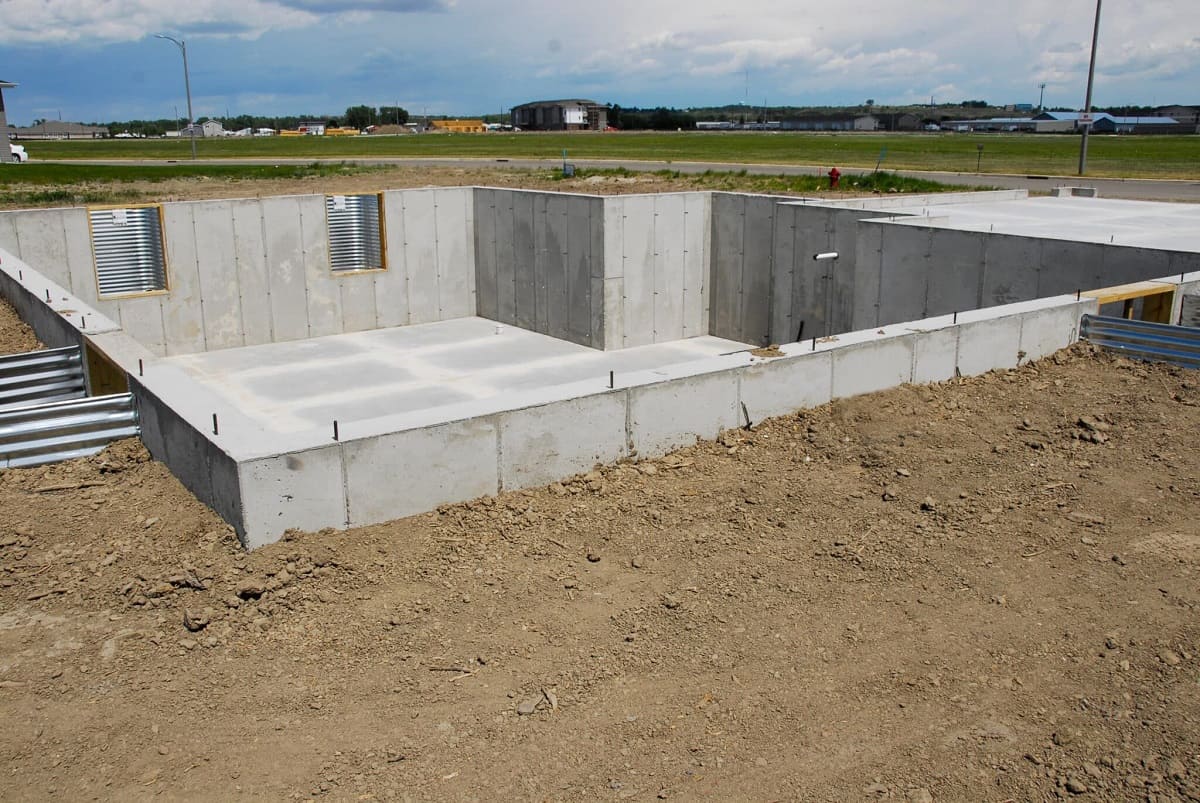


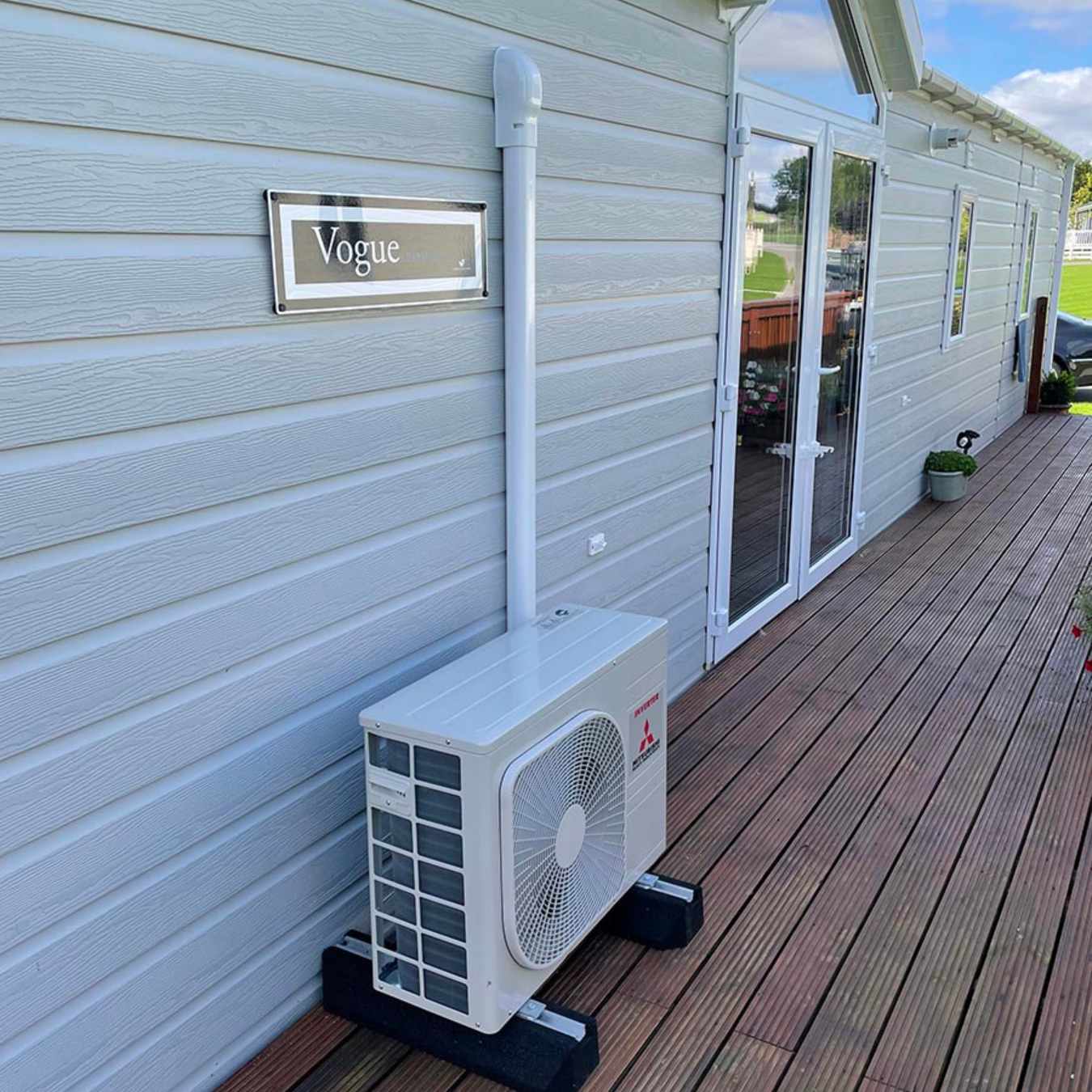

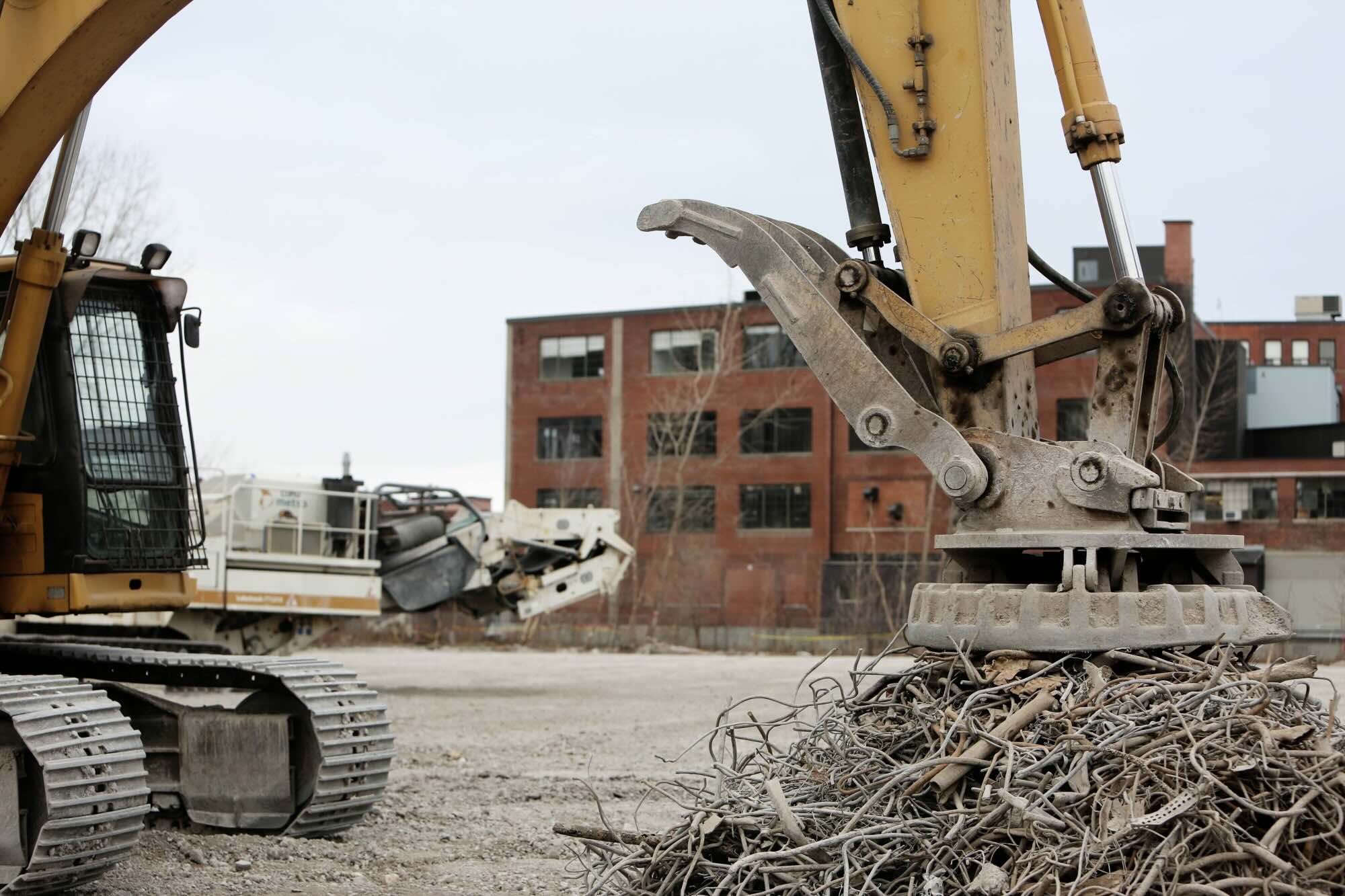

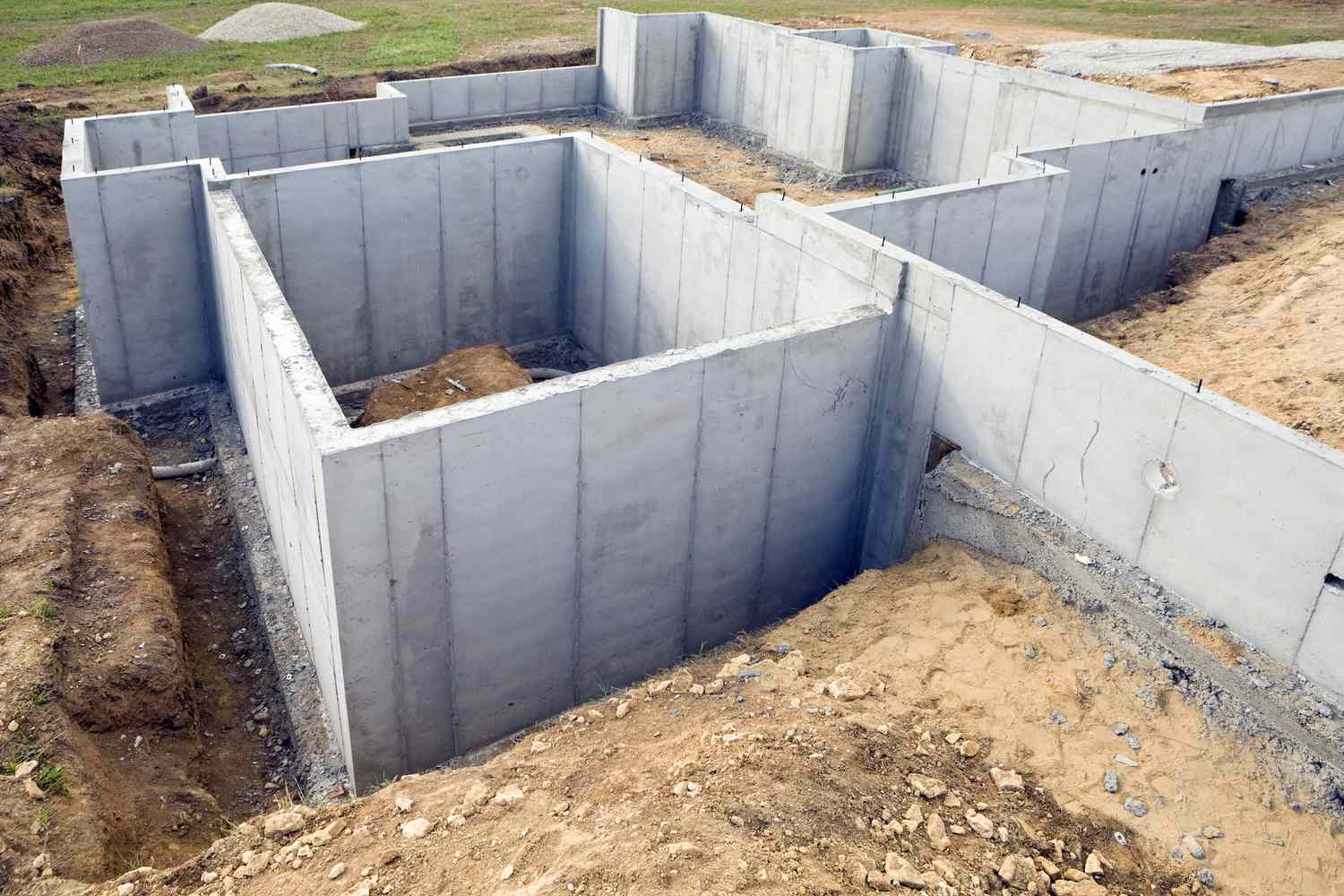
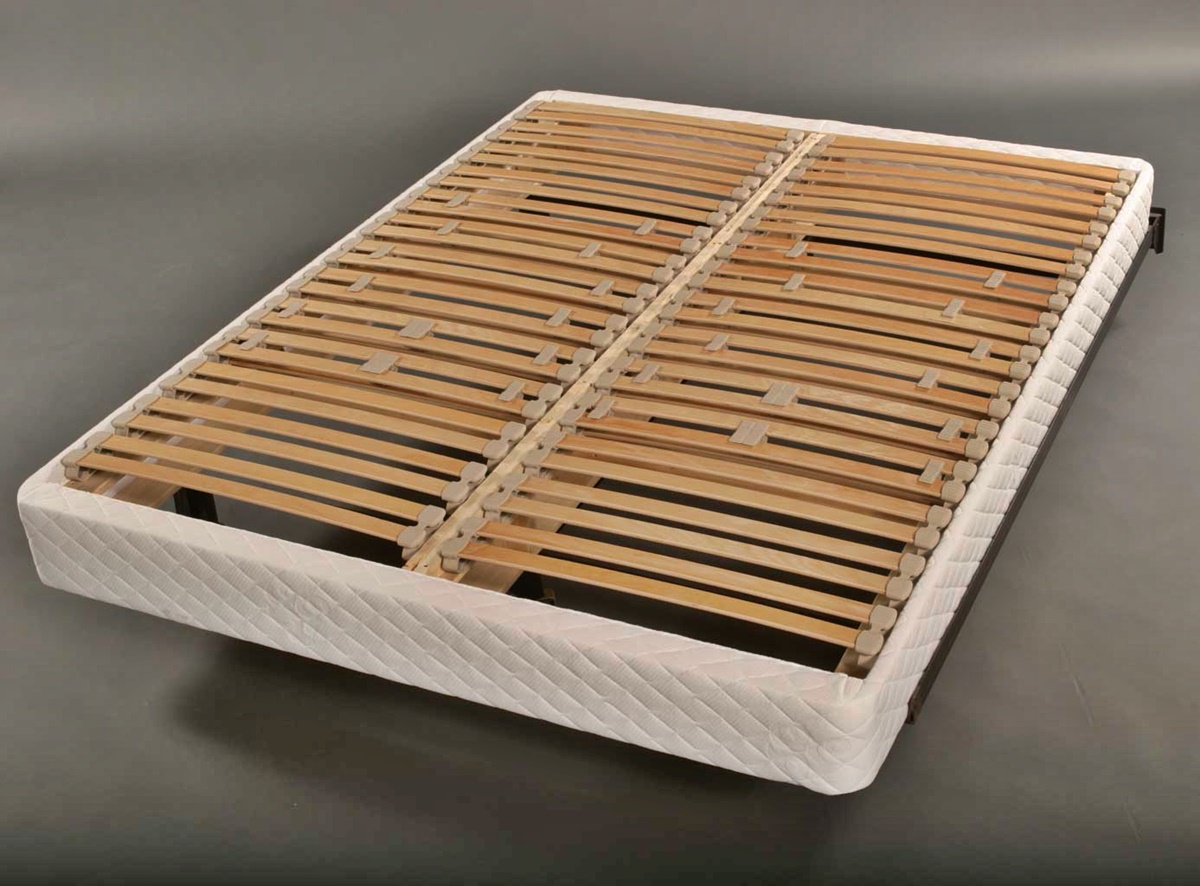


0 thoughts on “What Is Considered Permanent Foundation For A Mobile Home”